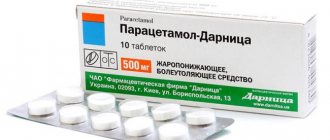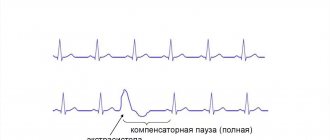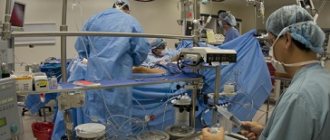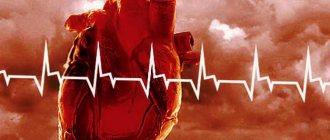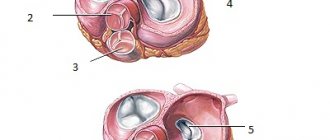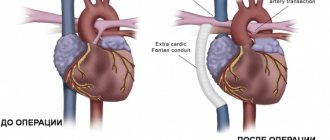Cardiac neurosis is one of those few paradoxical situations in medicine when there are certain disorders on the part of some organ (in this case the heart), but the organ itself is healthy. With cardiac neurosis, heart rhythm disturbances develop and various pains appear in the heart and chest area. All this can lead the patient to a state of panic, as it is sometimes accompanied by the fear of death. But, no matter how strange it may sound, the heart itself is absolutely healthy. The cause of heart neurosis is a violation of the regulation of its activity by the nervous system (overstrain of its vegetative parts), most often against the background of psycho-emotional overload. As soon as the problem in the nervous system is leveled, all heart symptoms immediately disappear. How does heart neurosis manifest itself, how to distinguish it from other diseases of this organ, how to fight the disease, you will learn from this article.
Heart neurosis (cardioneurosis) is not an independent disease according to the International Classification of Diseases. This condition is considered within the framework of psychosomatic diseases, in particular vegetative-vascular dystonia. In another way, cardiac neurosis is sometimes called neurocirculatory dystonia. All these formulations reflect the true cause of heart neurosis. And it lies in the imbalance of the regulatory influences of the nervous system on the heart muscle. The heart works without the participation of our thoughts, as if autonomously. But there is an autonomic nervous system, which ensures such relatively autonomous work. It can make the heart beat faster or slower and regulates blood flow in the vessels. Under various types of stress that the nervous system cannot cope with, the tone of the autonomic nervous system increases. This tension does not go unnoticed, including for the heart. And then, with a completely healthy heart, a person experiences pain, discomfort in the chest, a feeling of palpitations, a feeling of lack of air, and the like. Of course, such disorders do not occur with every stressful influence. Usually, for the appearance of cardiac neurosis, prolonged overstrain of the nervous system is necessary. But, once they appear, in the future, without treatment, the symptoms of neurosis are also caused by physical activity, and even appear on their own, and not only as a result of traumatic situations.
So, cardiac neurosis is not a “problem” of the heart, as we have already found out. But the symptoms of this condition are almost all “cardiac”. Let's look at them in more detail.
Gymnastics for heart neurosis
Experts have developed a special complex of physical therapy for this pathology.
- Lunges for 1-1.5 minutes, first with one leg, then the other.
- Deflection of the torso. The leg is pulled back, the upper body also bends back. Then the same is done with the other leg. The exercise is repeated 5-8 times on each leg.
- Squat on one leg, while holding onto a chair. Repeat 2-5 times with each leg.
- Rotational movements of the body, first in one direction, then in the other. Repeat 3-6 times.
- Imitation of boxer punches. You need to breathe in a random order. Make 8-15 blows with each hand.
In some specialized neuropsychiatric clinics, there are special neurosis departments in which patients with different variations of this disease are treated. Often, patients are brought to such departments by the presence of panic attacks, which can often be combined with migraines or other pathologies that debilitate the patient.
Cardioneurosis or heart pathology?
Alexander
September 30, 2021
Good afternoon, yesterday I felt bad - I didn’t sleep all night, in the morning there was a bad feeling of pressure in the heart area, fear, panic, sweaty arms, legs, difficulty breathing, tremors: all this happened against the backdrop of severe stress that happened a week ago. As a result, they called an ambulance, they took a cardiogram, there were some changes in the T wave, as I understood, and they said that we needed to go to the hospital, as far as I understood there was a suspicion of either a heart attack or angina. Upon arrival at the hospital, the cardiologist on duty said that the ECG showed no heart attack or angina, and wanted to let me go, I insisted that they do another ECG, which was about the same as the one that the ambulance did at home, plus they also took a test for troponin, which was negative and I was sent home with a diagnosis of cardioneurosis, cardiac type NCD due to stress. There is a history of NCD of the cardiac type: 4 months ago I completely checked the heart - there were about 500 supraventricular extrasystoles per day, the bicycle showed that there was no ischemia, then 4 months ago these symptoms began against the background of a sharp withdrawal of the antidepressant and tranquilizer phenazepam plus moderate alcohol consumption during this period background. I was treated with half a Betaloc tablet for about 1 month + magnesium + phenazepam and everything went away quite quickly. After 1 month, I underwent a full check-up at the cardio center, Holter, ABPM, Treadmill test, ultrasound of the heart, ECG and the conclusion was as follows: 1) Holter -2 extrasystoles per day and there were no other pathological changes 2) ABPM hypertension was not detected 3) There was no treadmill ischemia, the test was negative, ultrasound of the heart, as the cardiologist said, was normal. This was about 2.5-3 months ago. What happened yesterday was the result of stress and abrupt withdrawal of phenazepam, it seems to me because everything coincided in time. Below I am attaching an ECG and an Advisory Sheet from yesterday. My questions: is there an organic pathology of the heart and why was the ambulance suspected of a heart attack or angina? Second question, now I also don’t feel very well, anxiety, panic, pressing sensations in the heart area, sometimes a feeling like a coma in the throat, what medication would you recommend? Everything happens in waves, it lets go, then it rolls on, how can you help yourself in this situation? Among the medications, there is magnesium, motherwort, and betaloc, and I think there is also carvalol. What worries me more is the panic and anxiety that sets in, there is no obvious pain in the heart, there are sometimes unpleasant, pressing sensations. Yesterday at the cardio center, they gave me nitroglycerin from the medication, it dilated the blood vessels and immediately there was some kind of heat in the head and weakness in the legs, the chest felt a little better, but then the pressing sensations in the chest and fear and panic and heaviness in the head began to come in waves again and anxiety. It lasted until the evening while I was waiting for the Troponin result, after the nurse said that it was negative, it became much easier, I got ready and went home by taxi. The cardiologist at the cardio center said that it was something like cardioneurosis due to stress, sleepless nights, etc.
The question is closed
heart
pressing sensation
result of stress
What other symptoms can be observed with neurosis?
In addition to the above clinical manifestations, additional symptoms may be observed:
- One of the types of cardioneurosis is autonomic neurosis, which is often present as a symptom complex in pathological menopause, and in addition, in other hormonal disorders. In the presence of a pathological menopause, autonomic neurosis is called autonomic dyshormonal cardiodystrophy. Clinically, this disease can manifest itself as cardialgia of a cutting and pressing nature. Sometimes the pain can radiate to the arm and shoulder blade; among other things, the rhythm may become faster. Such painful sensations do not depend in any way on physical activity, and a state of rest as such does not bring relief. In addition, Nitroglycerin also does not give any effect.
- Symptoms in the form of sweating, hot flashes, shortness of breath, dizziness, parasympathetic crisis, tachycardia or bradycardia, trembling, hyperemia or pallor of the skin indicate some specific autonomic problems.
- With cardiac neuroses, manifestations in the form of high blood pressure, headaches and heart pain can also be observed.
Treatment of neurosis
During an attack of cardioneurosis, it is very important to provide the patient with proper first aid. Having noticed signs of neurosis, loved ones need, first of all, to calm down themselves, not to fuss, not to make sudden movements, to speak calmly and measuredly. Sometimes a simple conversation can relieve pain, which will distract the patient from his worries. It is also important to do the following:
- Place the person in a well-ventilated area and allow access to air.
- Remove or unfasten restrictive clothing.
- Measure your pulse and, if possible, your blood pressure.
- Give a sedative (tincture of valerian, motherwort, Persen, Novopassit and others).
If a person does not feel better within 15 minutes or his condition worsens, you need to call an ambulance. But even if the attack passed quickly enough, the person should definitely visit a cardiologist. Firstly, there is a possibility that the pain was caused by diseases of the cardiovascular system. Secondly, heart neurosis also requires treatment, since it significantly affects well-being and over time can provoke serious illnesses.
For confirmed cardioneurosis, therapy is prescribed individually, after a complete examination and identification of the cause. Self-medication is prohibited and can only worsen the condition - the patient will stop attacks of neurosis, but will not be able to reduce their number, moreover, each time they will be experienced more emotionally.
Symptoms of cardiac neurosis
Manifestations of cardiac neurosis that the individual himself can identify:
1. Pain in the heart during neuroses tops the list of “symptoms” in terms of the severity of their perception by the individual. As a rule, pain spreads to nearby areas. This is the so-called cardialgia, which must be distinguished from angina pectoris, which requires serious treatment.
How the heart hurts, symptoms of neurosis.
Heaviness of the heart with neurosis is quite common. Or burning sensations in the heart of varying degrees of manifestation can also help diagnose neurosis. In addition, the pain can be characterized as dull, stabbing, cutting and vary in duration. It all depends on the mental makeup and emotional background of a particular person. Therefore, heart pain due to neuroses does not always require treatment.
2. Chills or hot flashes. Sweating is common.
3. Shortness of breath (rapid shallow breathing), which appears due to lack of air. The symptom may be chronic.
- Cardioneurosis symptoms and treatment
4. Tachycardia (increase in heart rate) or bradycardia (decrease). They can change during the day depending on the psychological state.
5. Involuntary muscle contractions, manifested in the form of nervous tics and tremors (shaking). They may have varying degrees of severity, including involuntary movements of the body.
6. Paleness of the skin, which can be present either constantly or appear at a time of crisis. It all depends on the degree of depression of the nervous system.
7. Decrease in blood pressure or increase, as well as changes in extreme values.
8.Such isolated and seemingly insignificant symptoms as headache or dizziness also occur when considering the question “Heart neurosis symptoms and treatment
So, we answered the question “How is cardiac neurosis expressed?”
IMPORTANT! All of the listed symptoms do not appear individually if there is a suspicion of cardiac neurosis. For example, emerging negative nervous states provoke all or part of the physiological manifestations of the disease, which in turn entails increased emotional stress. The process is closed. In general, this condition is often characterized as a panic attack, which is an attack of deep, comprehensive fear or anxiety and is accompanied by the listed physiological manifestations. To some extent this is true, but the chain of events can be composed of a rearrangement of symptoms and begin with minor changes in the functioning of the heart. However, Heart Neurosis, symptoms and treatment suggests that the basis for the occurrence of the disease is always a psychological component, which triggers the process in a chain with an absolutely healthy heart or aggravates existing, but minor changes in its work. It is important that the real impact of neurosis on the heart with the listed symptoms is often not observed (for example, on an ECG machine). However, symptoms can develop into actual manifestations that are recorded during the diagnostic process.
Heart pain and other signs of neurosis
A characteristic sign of neurosis is pain in the sternum. An attack can last from 10-15 minutes to several hours, while the person will be restless, overly emotional, and fussy. He often becomes hysterical. This distinguishes cardioneurosis from true angina, in which the patient, on the contrary, tries to lie down and freezes from painful sensations.
People with neurosis describe pain in different ways - heat or cold in the sternum, the heart feels like it is being squeezed in a vice or, conversely, “jumps out”, it aches or stings. It is noteworthy that the description of the nature and intensity of pain during different attacks will differ. The frequency will also be inconsistent. For example, if a person rests more and his emotional state stabilizes, the pain disappears. At other times, they may bother you several times a week.
Seizures always leave an imprint on the patient’s further condition. Thus, it is precisely for patients with cardioneurosis that an obsessive fear of death is characteristic, which easily provokes panic attacks.
Additionally, a person may exhibit the following signs of neurosis:
- Dizziness, sometimes with nausea and faintness.
- Increased sweating.
- Headache.
- Feeling hot or cold.
- Sleep problems - insomnia or, conversely, drowsiness.
- Difficulty breathing - it is difficult for a person to take a deep breath; rapid, shallow breathing is observed.
Does your heart really hurt, or does it just seem like it?
Heart pain in the presence of neuroses can be considered a natural phenomenon. Considering that patients suffering from neurosis are characterized by pronounced emotionality, cardialgia in such patients can often be provoked by anxiety, conflict or simple expectation. Thus, everything is built on emotions, not only on negative impressions, but also on positive ones. For example, upon learning good news, a person clutches his heart.
How do pain in the heart manifest itself during neurosis?
- How to treat laryngeal neurosis
Heart diagnostics
The main task of diagnosis for cardiac neurosis is to differentiate the disease from pathologies of the cardiovascular system. A cardiologist can make a preliminary diagnosis by collecting an anamnesis - a characteristic description of attacks, the general emotional state of the patient. And yet, in order to exclude organic heart damage, a person needs to undergo the following examinations:
- Auscultation.
- Resting ECG.
- ECG with stress (stress tests).
- EchoCG.
If no pathologies are identified after the examination, the patient is referred to a psychotherapist and subsequently undergoes treatment from this specialist. In addition, it must be taken into account that neurosis can affect the condition of the heart muscle and cause diseases of the cardiovascular system. In this case, the patient should be observed by two specialists - a cardiologist and a neuropsychiatrist.
Alarming symptoms
Cardiac neurosis is a serious disease because it reduces the quality of life. Calm, full of strength and faith in his abilities, a person gradually becomes fearful, insecure and tense. This happens due to fears that arise completely unexpectedly. Fear for yourself, for your family, for your work. However, this is not short-term anxiety, but a sudden attack of anxiety, closer to a panic attack than a temporary loss of mood. Sometimes this fear is completely unfounded and even more painful. In addition, the more often it happens, the more harmful it is to the body, both mentally and physically, since it causes constant muscle tension and an excessively rapid pulse.
Terrible anxiety
Fear can upset the balance of life. A person cannot function normally if he is constantly afraid of something. Unfortunately, this is the most common symptom of heart neurosis – anxiety. This may be caused by specific things: fear of death, fear of losing a job, control over one's life, loss of family, and may also be unreasonable. He appears and does not want to leave, or accompanies the patient all day, which prevents him from concentrating on daily activities. Some people even lock themselves at home and don’t go outside because the whole outside world bothers them.
